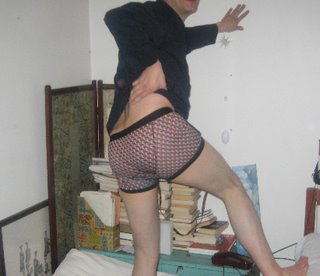
Notes from a living room II. Usual disclaimer applies…
Multitude written in depth of anti-war movement so everything comes down to war. Seems very dated now and doesn't make sense. Movements close to Hardt & Negri’s politics emerging that have tried to push notion of precarity, in response to the big problem of anti-globalisation movement — the ‘movement’ only materialises at big events (summits, ESF etc), so what happens in between? Social movements in Spain, France & Italy all pushing precarity which seems a much more central idea (but are we repeating Hardt & Negri’s mistake of being too caught up in the moment?).
Is France about precarity? Could we see it as an old-fashioned labour struggle? Different because it raises question of future, finitude, potential — law was not an assault on existing workers, but on workers-to-be. Struggle was far from defensive, very forward-looking, and immediately opened up other issues. People don’t go out on to the streets to keep things the way they are, they go out because they sense that things could be different. Beyond scrapping the law, what were the demands? Same as Argentina, a massive creation of precarity, which ended up with ‘Que se vayan todos’. Easy to imagine in the UK, say, with a collapse in the housing market.
Precarity is not a reductive tool, not a way of flattening all struggles into one category. Should be a tool that opens up. The Wombles’ attempt to organise precariat on MayDay is a step: we do need to look at how we materially reproduce ourselves. But precarity is much more than a sociological category. Precarity relates to moments of excess. MoE are so excessively productive because we end up in ‘precarious’ situations where decisions carry real weight. When we’re outside habitual life (on the edge of the void), that’s what makes MoE so productive. But there’s a danger of losing it in black holes, and we run up against our bodies’ physical limits, so we need to draw back etc. These ideas make sense in terms of movements based around precarity — eg social centres can function as safe spaces but also run the risk of calcification.
[huge discussion about the 'fascistic' nature of extreme sports, most of which was off-topic, but did chance on a couple of things: the team spirit of rock climbers & pot-holers etc equates to strength of miners and sailors etc. Intoxicating buzz of making decisions that affect your own lives. Also undermines individual notion of body — one person’s mistake can put everyone’s lives on the line. Becoming one body. Similarity to drugs (apparently). This is why the Futurists were so successful — appeal to those looking for thrills & buzz. Relates to black hole, entropy, loss of self, carcinogenic nature of Body without Organs. Clearly we need boundaries, but maybe it’s less a matter of where we draw the line (eg Disobeddienti standing for elections?) and more how we draw it.
Relates to zealousness of new activists, where energy and desire can quickly solidify, via repetition, into a fixed & defensive ‘identity’ (“what we need now is more activists”); in fact, a more likely outcome of this trajectory is an ultra-left cynicism. Both represent some sort of accommodation to the world, and both are pretty much unavoidable (ie it’s not about good or bad, we all do these things). What was liberating about Gleneagles — depending on how open our approach was — was how it liquefied our identities (both ‘activist’ and ‘cynic’), made us feel connected to other bodies. But that’s also why it’s quite hard to be open to these precarious moments: it’s much more risky to be enthusiastic at the time or even after the event.
Symmetry about activist approach: enthusiastic about what they do as activists, but cynical about what non-activists do (work, shop, watch TV — ie habitual life). Is this true? Isn’t it more the case that hardcore activists are actually the least enthusiastic and the most detached, not least because all struggles are elsewhere? Whatever, the activist and the cynic both occupy fucked-up safe spaces.
It’s often unpleasant and difficult to keep these moments open — the closure around a safe space isn’t a conscious thing, it’s just a process of calcification. But when things start to move (as in France), then it ripples through everyone and even the hardened ultra-leftists can start to think and act in more open ways (see some of the best blogs from France). Barriers drop down and a real movement takes over.
At the time of setting up the CommonPlace in Leeds, it felt like big things were are stake (ie, we were in a ‘precarious’ situation where decisions carried real weight), so destructive influences had to be confronted and contained before they jeopardised the project. Boundaries were set (& people physically expelled…). But this was also productive, allowing people who had never worked together to immediately find common ground. And it then enabled us to hold one of the most exciting meetings which was a completely open one where people outlined what they wanted in a social centre, irrespective of cost or practicality (eg a 50 metre swimming pool!).
How do we measure success? In a social centre, is it measured by the bank balance, number of events, size of membership? And if a social centre is ‘stable’, doesn’t this then mean that it’s less productive. Often we act as if the centre is in ‘crisis’ which we can only solve by bringing in new people who will bring new ideas — behind this there is an unspoken assumption that we should be aiming for self-sufficiency (so the centre is a complete model in a contiguous space, rather than an experiment which ripples through Leeds with no real boundary).


